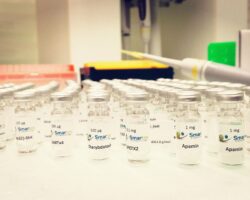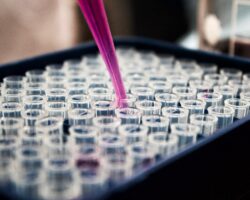
Introduction
Welcome to our comprehensive guide on how to safely and effectively store research peptides. In this article, we will delve into the world of research peptides, highlight the importance of proper storage, discuss factors affecting peptide stability, explore optimal storage conditions, and provide you with best practices and recommended storage methods. So, let’s dive in and ensure your research peptides stay in optimal condition for your experiments and studies.
Understanding Research Peptides
Research peptides are short chains of amino acids that are used in scientific research for various purposes. They play a crucial role in fields such as biology, chemistry, and medicine, offering valuable insights into cellular functions, molecular interactions, and potential therapeutic applications. Due to their delicate nature, it is vital to handle and store these peptides with utmost care to maintain their integrity and effectiveness.
Importance of Proper Storage
Proper storage of research peptides is essential to preserve their stability, potency, and overall quality. Exposure to unfavorable conditions such as extreme temperatures, light, moisture, and contaminants can lead to peptide degradation, rendering them ineffective for research purposes. By implementing appropriate storage practices, you can extend the shelf life of your peptides and ensure reliable and consistent results in your experiments.
Factors Affecting Peptide Stability
Several factors can impact the stability of research peptides. It is important to be aware of these factors to minimize any potential risks. Factors such as temperature fluctuations, exposure to light, air, moisture, and improper handling can all contribute to peptide degradation. Additionally, contaminants and improper storage containers can also compromise the stability and purity of peptides. Understanding these factors is crucial in implementing effective storage strategies.
Optimal Storage Conditions
Creating and maintaining optimal storage conditions is key to preserving the stability and quality of research peptides. The ideal temperature for peptide storage is typically below freezing, around -20°C to -80°C, depending on the specific peptide. It is also important to protect the peptides from light, moisture, and contaminants. Storing peptides in airtight containers, such as vials with rubber stoppers or sealed cryovials, can provide an additional layer of protection.
Common Mistakes to Avoid
When it comes to peptide storage, there are a few common mistakes that researchers should avoid. One of the most common errors is exposing peptides to fluctuating temperatures, which can lead to degradation. Another mistake is improper labeling of storage containers, which can result in confusion and potential mix-ups. Using unsuitable storage containers or failing to seal them properly can also compromise the quality of the peptides.
Best Practices for Peptide Storage
To ensure the longevity and stability of research peptides, it is crucial to follow best storage practices. Firstly, always handle peptides with clean gloves and tools to minimize contamination. Secondly, maintain a consistent temperature by using reliable and properly calibrated storage equipment such as ultra-low temperature freezers. Thirdly, label storage containers clearly with the peptide name, concentration, and storage date for easy identification.
Recommended Storage Methods
There are various storage methods available for research peptides, depending on the specific requirements and constraints. For short-term storage, refrigeration at temperatures between 2°C to 8°C can be suitable. However, for long-term storage, freezing at temperatures below -20°C is recommended. For utmost stability and extended storage, ultra-low temperature freezers at -80°C are the gold standard. It is important to choose the appropriate storage method based on the peptide’s stability and intended duration of storage.
Monitoring and Testing Peptide Quality
Regular monitoring and testing of peptide quality is essential to ensure their efficacy and reliability in research. Periodic assessments, including purity analysis, potency testing, and stability studies, can help identify any changes or degradation in the peptides. By monitoring the quality of your peptides over time, you can take appropriate measures to maintain their integrity and make informed decisions regarding their usage in experiments.
Conclusion
To wrap up, storing research peptides safely and effectively is crucial for maintaining their stability, potency, and overall quality. By understanding the factors that can affect peptide stability, implementing optimal storage conditions, and following best practices, you can ensure that your research peptides remain in optimal condition for your scientific endeavors. Remember, proper storage is key to unlocking the full potential of research peptides in advancing scientific knowledge and discoveries.





